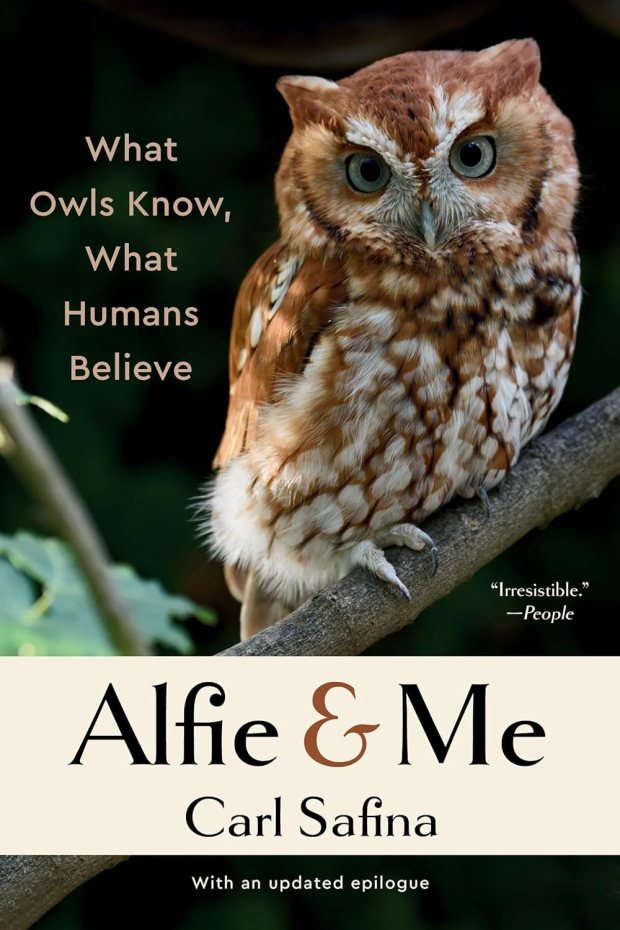Editor’s note: The opinions of the smart, well-read women in my Denver book club mean a lot, and often determine what the rest of us choose to pile onto our bedside tables. So we asked them, and all Denver Post readers, to share their mini-reviews with you. Have any to offer? Email bellis@denverpost.com. – Barbara Ellis
“A Slowly Dying Cause,” by Elizabeth George (Viking, 2025)
George follows her typical, successful formula, but with intriguing new details in her latest Lynley crime novel. A murder in Cornwall. Too many potential suspects. A distracted lead investigator. Inspector Lynley and loyal sidekick Sgt. Havers swan in to show the locals how to run a murder investigation. Did I also detect a potential rekindled love interest for Lynley? Can’t wait for the next installment to find out. — 3 1/2 stars (out of 4); Kathleen Lance, Denver

“Alfie & Me: What Owls Know, What Humans Believe,” by Carl Safina (W.W. Norton & Co., 2023)
The tiny creature originally looked like a wet washcloth and was not expected to live, but it survived and over time became identifiable as an Eastern screech owl. Luckily for us, the chick’s feathers were damaged and an early release back into the wild was impossible. So, Carl Safina listened, watched, and took meticulous notes as this little being gradually became a free-living owl spending most of its time a few feet from the author’s back door. His masterful telling of Alfie’s story would have been enough for me, but Safina, well established as one of the world’s best science writers and author of the acclaimed “Beyond Words,” has turned this story into something grand and monumental. Alfie’s coexistence with the author’s family and the progress she makes in her recovery inspires Safina to tap into his background in philosophy, religion, world literature and traditions. He lays out the most sensible and persuasive explanation as to how we got away from connection and onto the path of destruction that I have ever read. — 4 stars (out of 4); Michelle Nelson, Littleton
“The Barn: The Secret History of a Murder in Mississippi,” by Wright Thompson (Penguin Press, 2024)
This is a deeply researched account of the 1955 murder of Emmitt Till, the cultural circumstances that led up to it, and the resulting cover-up. Thompson argues forcefully about the South’s determination to forget its history rather than to learn from it. He grew up just miles from the barn in which Till was killed, and meticulously re-creates the horror of the times, the crimes, and its lessons. This is a story of power, of white supremacy, and the institutional racism that continues to contaminate our culture. The book made several “best” lists. A powerful read. — 4 stars (out of 4); Jo Calhoun, Denver

“Fireweed,” by Lauren Haddad (Astra House, 2025)
Haddad explores issues of race, class and gender through the lens of a young woman living in a small industrial town in British Columbia. Jenny struggles with underemployment, loneliness, condescension from the men in her life, the disapproval of her cougar mother and, worst of all for her, her failure to conceive a child. Jenny moves beyond her prejudices to offer friendship to her First Nations neighbor. She is shocked when the police, along with everyone else in her life, turn a blind eye when that woman disappears. Yet, the community rallies and moves heaven and earth to find a missing white woman. The injustice is not lost on Jenny. Haddad chose the title “Fireweed,” because that ubiquitous plant is known as a wound healer, a hopeful metaphor. The Indigenous women of this novel sadly have little more than hope to go on. — 3 stars (out of 4); Kathleen Lance, Denver
“Longbourn,” by Jo Baker (Knopf, 2013)
Charming from the first page, “Longbourn” is a fresh look at the events of Jane Austen’s “Pride and Prejudice” through the eyes of three servants in the Bennett household. This tale doesn’t require in-depth knowledge of P&P, but if you recall the main events your enjoyment will be greater. Baker wisely doesn’t attempt to write entirely in Austen’s wry style, but glimmers do peek through. The way Baker slips her story within Austen’s masterpiece is inventive and essentially seamless. The characters have depth, and I cannot choose a favorite: Sarah the maid, Mrs. Hill the cook/housekeeper, or James the footman. I felt for them all. — 4 stars (out of 4); Neva Gronert, Parker



